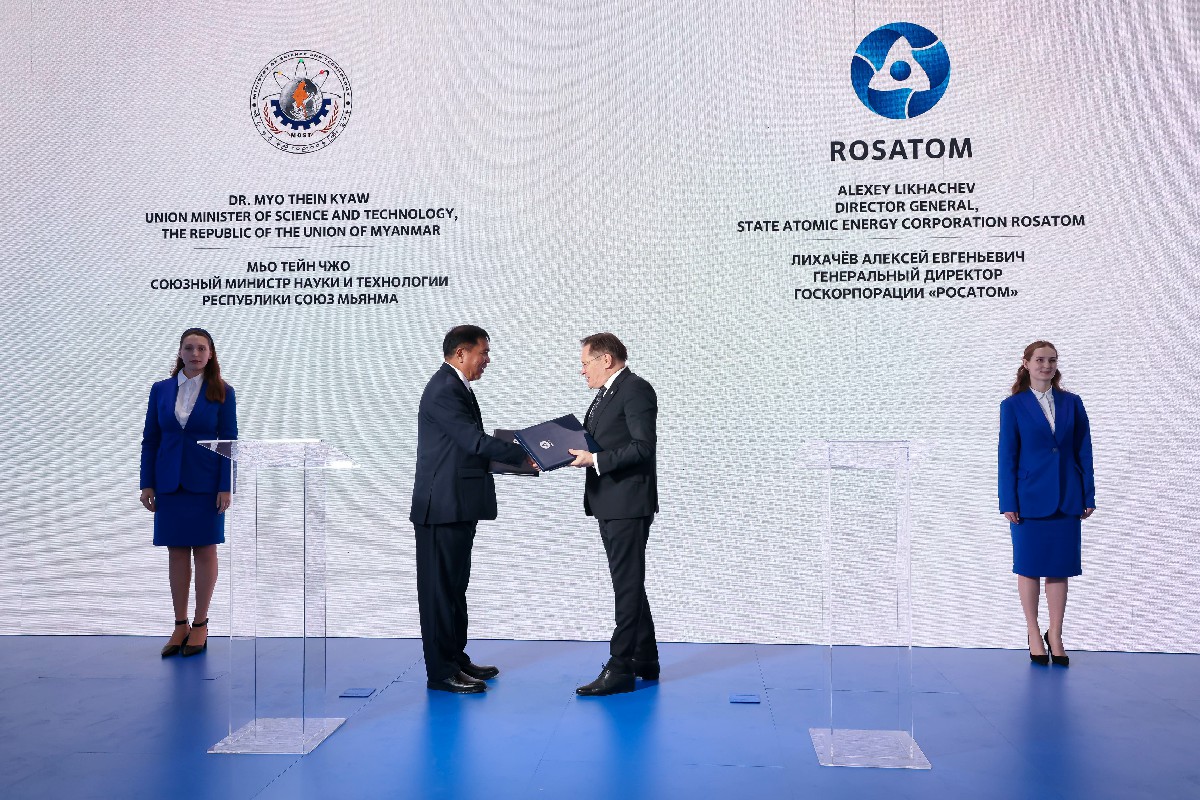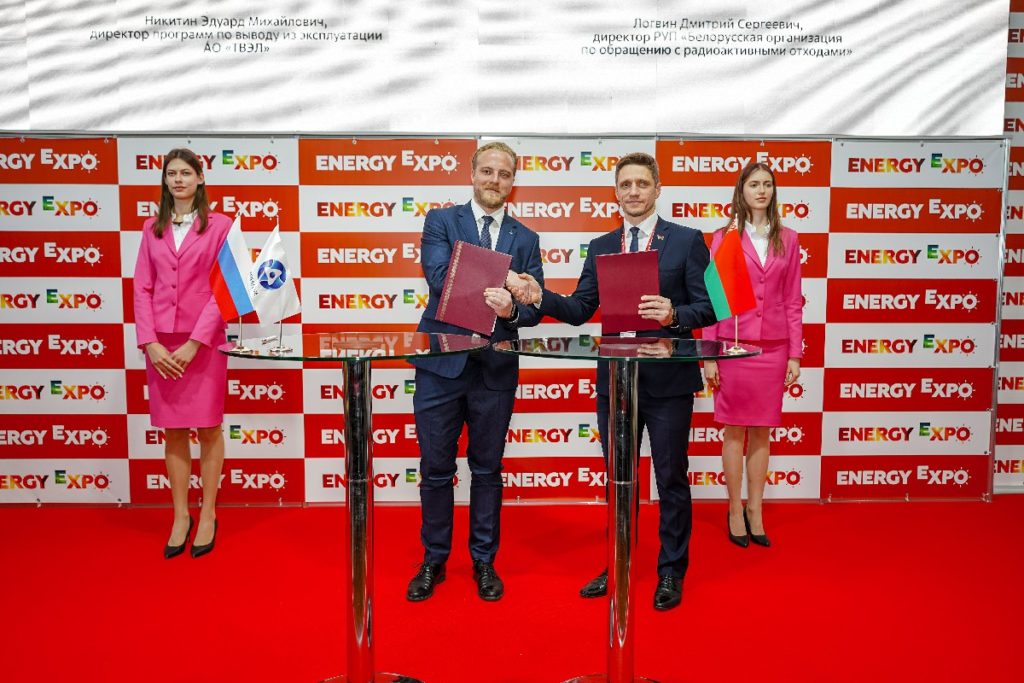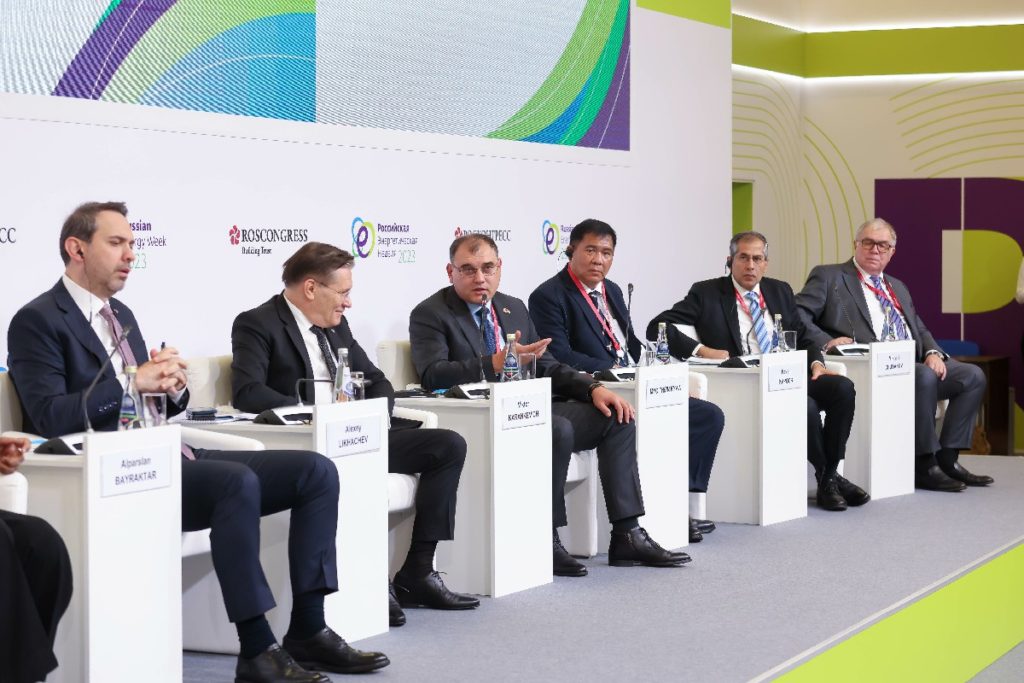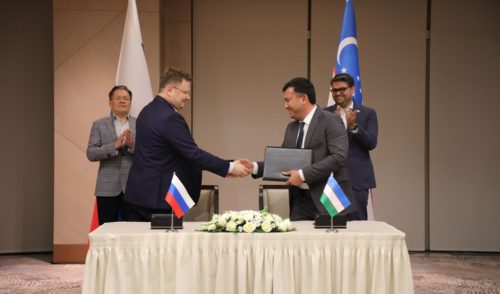
Seeds of Cooperation
back to contentsThis October saw Rosatom’s participation in two major events, the Russian Energy Week (REW) in Moscow and the Belarusian Energy and Environment Forum EnergyExpo in Minsk. The two events yielded a number of cooperation agreements encompassing both general frameworks and specific arrangements for the Russian nuclear corporation and its subsidiaries.
More countries have joined the ranks of nuclear countries through Rosatom’s efforts. For now, these are Belarus, Turkey, Bangladesh, and Egypt. “El Dabaa is our flagship nuclear project on the African continent, but our work is not limited to just building the plant. Together with our friends in Egypt, we are creating an entire nuclear power industry in that country from scratch by training personnel and providing maintenance support. In other words, we are helping Egypt to embark on the path of sovereign energy development. This comprehensive, systemic approach is one of Rosatom’s main competitive advantages, not to mention its traditionally high standards of reactor safety and reliability,” Russian President Vladimir Putin said at the Russian Energy Week.
At REW
Viktor Karankevich, Minister of Energy of Belarus, spoke at the REW about the economic improvements achieved by Belarus with the nuclear power plant: “The Belarus NPP has given a powerful impetus to the development of new and promising sectors — these are energy-intensive industries and construction of apartment buildings and houses with electricity used for heating and hot water supply. Much attention is paid to the development of electric vehicles.” The country expands its charging infrastructure as the number of electric vehicles is growing. The nuclear power plant has saved 5.3 billion cubic meters of natural gas and prevented the emission of over 9 million tonnes of greenhouse gases. With the launch of the second unit in May, the share of nuclear in Belarus’ energy mix will approach 25 % this year and then grow to 40 %.
Minister of Energy and Natural Resources of Turkey Alparslan Bayraktar said that Akkuyu Unit 1 was scheduled to generate first power in 2024. The Akkuyu NPP will provide 10 % of Turkey’s energy needs, thus preventing the emission of 30–35 million tonnes of carbon dioxide.

Myanmar is another partner of Rosatom. “It is necessary to introduce innovations to raise the level of technology. Deploying nuclear power will drive the development of technology and improvements in the quality of products, services and education. Myanmar will deploy nuclear technology with Russia’s help,” said Myanmar’s Union Minister for Electric Power U Nyan Tun.
On the same day, Rosatom and the Ministry of Science and Technology of Myanmar signed a memorandum of understanding on the assessment and development of the country’s nuclear infrastructure. The parties will identify Myanmar’s needs and draw an action plan to build small nuclear power plants. The document also provides for cooperation in training personnel and improving safety culture in the organizations involved in the deployment of nuclear power in Myanmar.
Besides Myanmar, the Russian nuclear corporation signed agreements with two African countries. A memorandum of understanding on peaceful uses of nuclear energy was signed with the Ministry of Mines, Quarries and Energy of Burkina Faso. Being the first nuclear-related document between Russia and Burkina Faso, it paves the way for cooperation in many areas, including approaches to nuclear generation, non-energy applications of nuclear technology in industry, agriculture and medicine, development of nuclear infrastructure, and raising public awareness.
A memorandum of understanding was also signed between Rosatom and the Ministry of Energy and Water of Mali. It covers such aspects as nuclear infrastructure, public awareness of nuclear technology, fundamental and applied research, nuclear research facilities, application of radioisotopes, nuclear and radiation safety and security, personnel training, and nuclear power.
At EnergyExpo
More specific agreements were signed with companies from Belarus, which has long been cooperating with Russia in nuclear technology. An example of these is a roadmap signed by T-com, a telecom equipment manufacturer and part of Rosatom’s fuel division TVEL, and Promsvyaz, part of the Belarusian Ministry of Communications and Informatization. The parties will collaborate in developing, manufacturing and deploying telecommunications equipment at Promsvyaz subsidiaries and training their personnel. As provided for in the roadmap, they will identify what the Belarusian market needs, with necessary equipment certified and supplied. The roadmap covers the period of 2023–2024.
TVEL and the Belarusian Radioactive Waste Management Organization (BelRAO) signed a long-term cooperation agreement to establish and develop the infrastructure for ultimate disposal of radioactive waste in Belarus. The agreement provides for the operation and maintenance of a near-surface repository, monitoring activities, and staff training.

Alparslan Bayraktar, Alexey Likhachev, Victor Karankevich, Myo Thein Kyaw , Pavan Kapoor, Mikhail Chudakov
Rosatom and the Ministry of Natural Resources and Environmental Protection of Belarus also signed a memorandum of understanding that calls for the cooperation on hazardous waste management, recycling and disposal, environmental monitoring action, and legacy management.
Challenges ahead
Speaking at the Russian Energy Week, Rosatom chief Alexey Likhachev outlined strategic plans of the Russian nuclear corporation. One of the most important challenges is to ‘close’ the nuclear fuel cycle as this will remove commodity-related and environmental constraints that hold back development of the global nuclear power industry. Rosatom plans to begin scaling up its closed fuel cycle technology in 2032–2034 by building fast and thermal reactor complexes. A completely new — thermonuclear — generation technology might emerge after 2050. “We are still far from commercializing this concept, but we will continue to work, putting more effort and money into the idea,” Alexey Likhachev stated.




